Excavation Contractors Mississippi
Find top Excavation Contractors Near Me in Mississippi
Get 3 FREE Trenching Services quotes for your project today! Compare profiles, reviews, accreditations, portfolio, etc... and choose the best service.
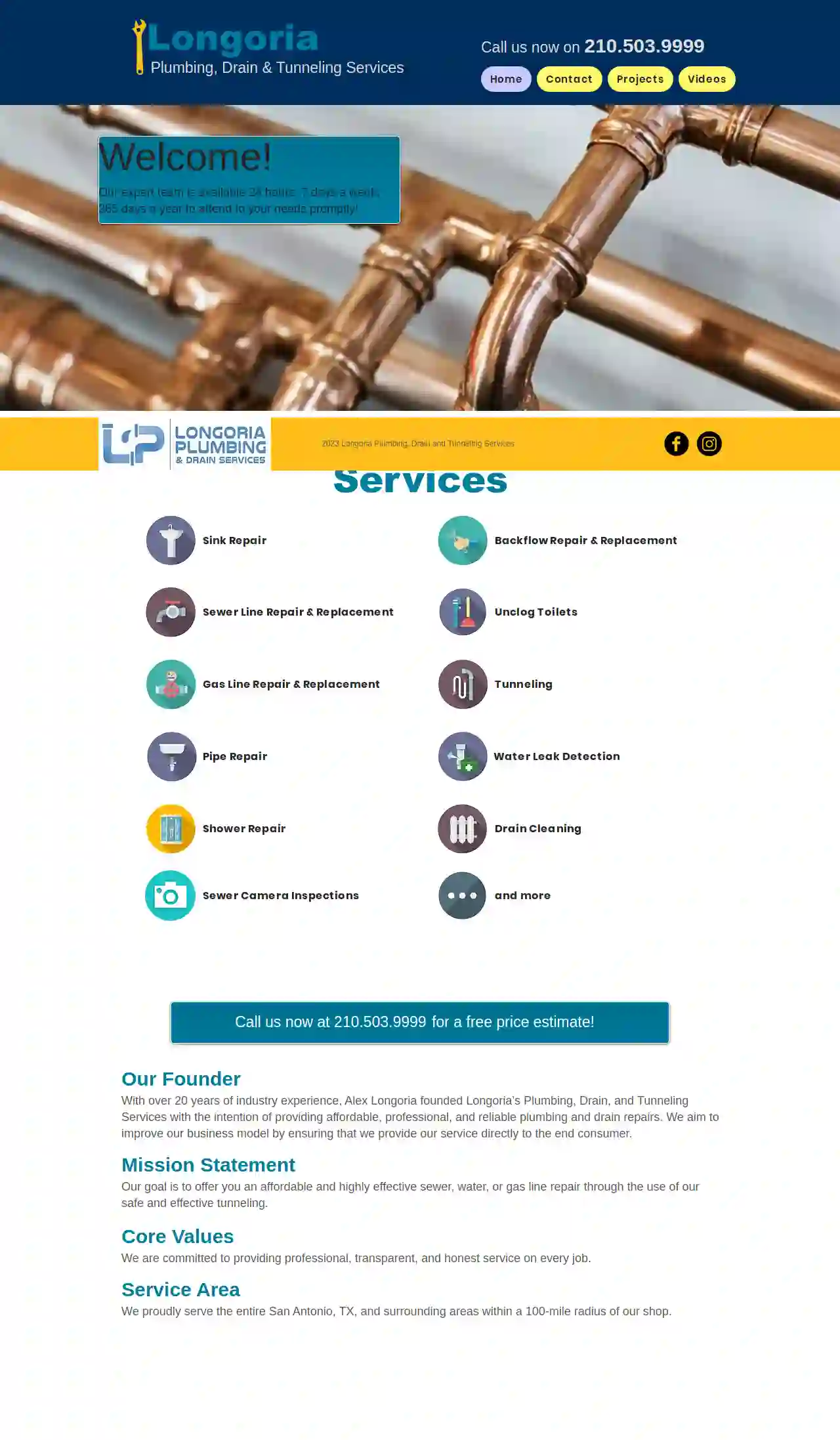
Longoria Tunneling and Plumbing Services
4.946 reviewsSan Antonio, US- Services
- Why Us?
Get Quote
Elmer Lewis & Sons Excavation & Septic
49 reviewsDanbury, USElmer Lewis and Sons: Your Trusted Septic System and Excavation Experts At Elmer Lewis and Sons, we're a family-owned and operated business with a legacy spanning three generations. We take pride in delivering top-notch septic system services and excavation work, always with a commitment to excellence that's been passed down through our family. Whether you need a new septic system installation, excavation work, or sewer and water line replacement, our experienced team is here to ensure your project is handled with expertise and care. We understand that your septic system is a crucial part of your property, and we're dedicated to providing reliable and efficient solutions that meet your specific needs. Our services include: Septic System Services Septic Installation: We design and install efficient, reliable septic systems tailored to your property's specific needs. Septic Repair: From minor fixes to major overhauls, our repair services ensure your septic system functions optimally, extending its lifespan and performance. Septic Pumping: Regular pumping of the septic tank with a visual inspection of the tank is vital to maintain the life of your septic system. Real Estate Inspections: We provide in-depth inspections of your septic system prior to the sale of your property. If requested, we can use a camera to do the inspection. Excavation Services Site Preparation: We prepare your site for construction, ensuring a solid foundation for your project. Trenching: Accurate and efficient trenching for utilities, drainage, and other needs. Grading: Proper grading is essential for water drainage and land stability. Our grading services ensure your land is shaped correctly for your project's success, extending its lifespan and performance. Sewer & Water Line Services Installation: Installation of new sewer lines using high-quality materials and high-tech equipment. Assessment: Comprehensive assessments to determine the condition of your existing lines. Replacement: Professional replacement services using high-quality materials to ensure long-lasting results. Maintenance: Ongoing maintenance services to keep your sewer and water lines in peak condition, preventing future problems. Why Choose Elmer Lewis and Sons? Experienced Team: With years of hands-on experience, our skilled professionals deliver exceptional results. Comprehensive Solutions: We offer a full range of services to meet all your septic and excavation needs. Quality Assurance: We use the best materials and techniques to ensure long-lasting and effective solutions. Customer Satisfaction: Our commitment to customer satisfaction means we work closely with you from start to finish. Ready to start your next project? Contact Elmer Lewis and Sons today for a free consultation. Experience the difference of working with a team that values quality, reliability, and customer service. Elmer Lewis and Sons – Building trust, one project at a time.
- Services
- Why Us?
- Gallery
Get Quote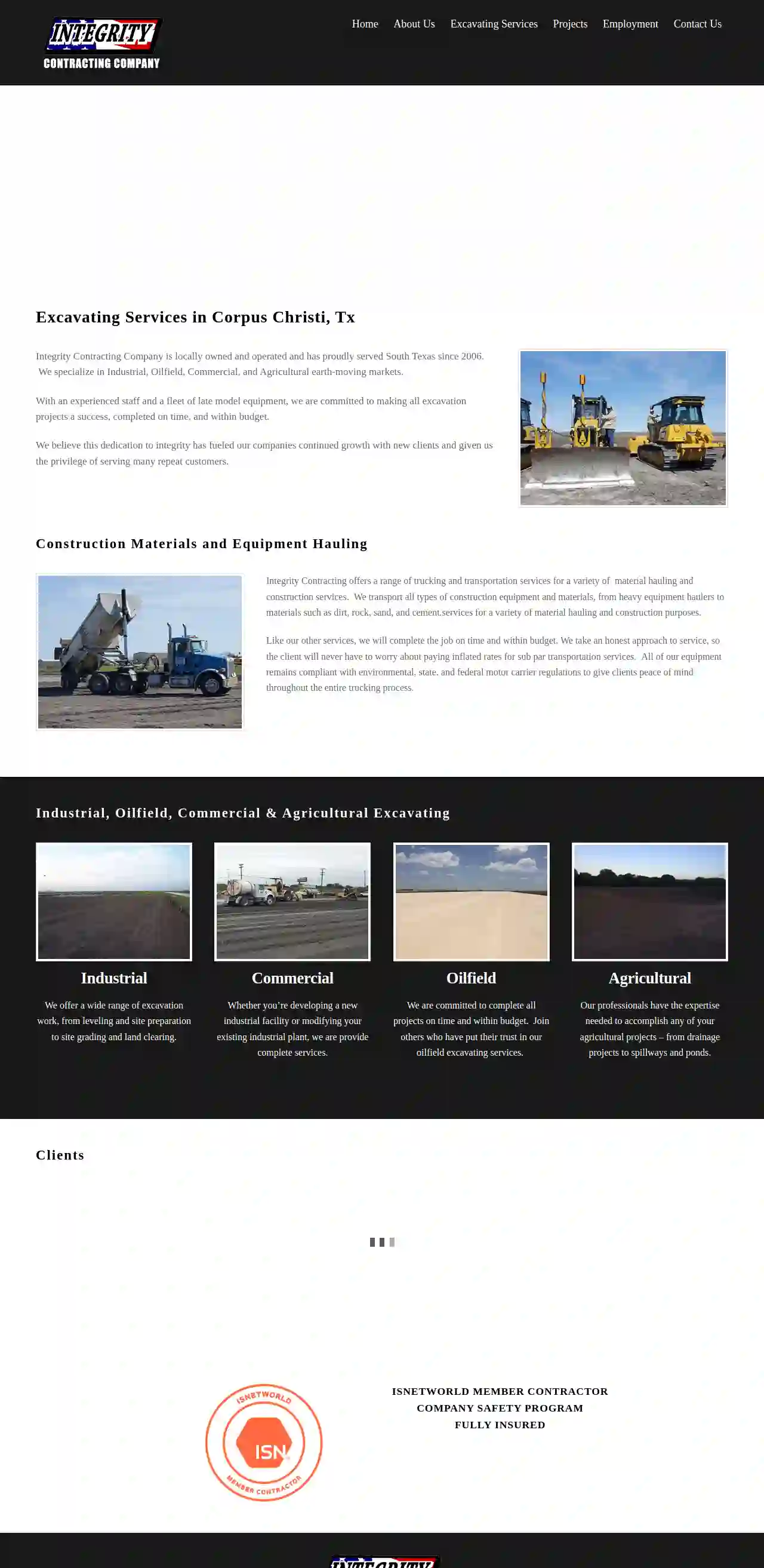
integrity Contracting Company, Inc.
51 reviewsCorpus Christi, US- Services
- Why Us?
Get Quote
Sustainabuildity llc
12522 North Proctor Street, suite 134, 2522 North Proctor Street suite 134, Tacoma, 98406, USCrafting Spaces That Inspire Transforming your property into a beautiful and functional space. Explore Our Work About SABI LLC With over 30 years of experience in the construction industry, SABI LLC has become a trusted name in the field of construction. Our team of experts has the knowledge, skills, and expertise to handle any project, big or small. We have completed numerous projects ranging from residential homes to multi-family units, and our clients can attest to our commitment to quality and excellence. Our Team Our team is made up of experienced and skilled individuals who are passionate about what they do. From our project managers to our skilled tradespeople, we work together to ensure that every project is completed to the highest standard. We believe in building lasting relationships with our clients, and it shows in the way we approach every project. Our Services At SABI LLC, we offer a wide range of services to meet the diverse needs of our clients. Our services include civil work, dump trucking, street sweeping, design-build, general contracting, construction management, and more. We work closely with our clients to understand their unique needs and deliver solutions that exceed their expectations. We are committed to delivering projects that are on time, within budget, and of the highest quality. Building the Future: A Stunning Collection of SABI LLC's Completed Projects Rave Reviews from Happy Customers
- Services
- Why Us?
- Gallery
Get Quote
TNG Excavation
3.73 reviewsBoise, USWelcome to TNG Excavation - Excavating Contractor We are a proud family owned and operated company. With over 20 years in excavation, we strive for customer satisfaction from beginning to end. Your happiness is our guarantee! A Variety Of Services TNG Excavation offers many different services, letting you get a lot of the work done with just one company! Excavation Services Basic & Complex septic system Sewer- Water- Septic Foundation Grading & Leveling Site Prep- Prep Work French Drains Trenching-Utilities Driveways/Parking Lots/RV Pads Servicing Nampa, Caldwell, Boise, Meridian, Kuna, Emmett, Star, Eagle, Payette, Fruitland, Garden Valley, Valley County, Boise County, Elmore County, Treasure Valley. Have It Done Right We guarantee your satisfaction. With an average 5 Star rating, your experience with TNG Excavation is the most important to us! We are honest, reliable, and efficient; everything you've been looking for! We are fully licensed, insured, and bonded, including Public Works.
- Services
- Why Us?
- Gallery
Get Quote
Go Direct Paving
566 reviewsDavis, US- Services
- Why Us?
Get Quote
Rustic Construction and Excavation
51 reviews7560 Government Way Unit 1, Coeur d’Alene, 83815, USRefined Sophistication. Extraordinary Service. Bringing the best in construction and design to North Idaho & Montana CUSTOM HOME BUILDS With years of experience in custom home building across Idaho and Montana, we bring unparalleled craftsmanship, attention to detail, and a personalized approach to every project. Excavation We provide top-notch excavation services to prepare your site for success. Whether it’s a residential build, commercial development, or a landscaping project, our experienced team has the skills and equipment to handle it all. Specializing in Hard to Cut Roads & Retaining Systems We specialize in conquering the most difficult terrains with unparalleled expertise and precision. Our dedicated team excels in navigating and constructing through the toughest landscapes with advanced techniques and equipment. About Rustic Construction and Design Welcome to Rustic Construction and Design, where your dream home or project becomes a reality. Our team of experienced professionals specializes in custom home building and excavation, ensuring every detail of your vision is crafted with precision and care. Our Approach Whatever project you are looking to get done should reflect your unique style and needs. We work closely with you from the initial concept to the final nail, tailoring every aspect to meet your specific requirements. Expert Craftmanship At Rustic Construction and Design, we take pride in our unmatched craftsmanship. Our team of skilled builders and excavators bring years of experience and a keen eye for detail to every project, ensuring top-quality results that stand the test of time. Our Commitment to Quality We use only the highest quality materials and adhere to the strictest building standards. Our commitment to excellence ensures that whatever project we are constructing, is durable and done right!
- Services
- Why Us?
- Our Team
- Gallery
Get Quote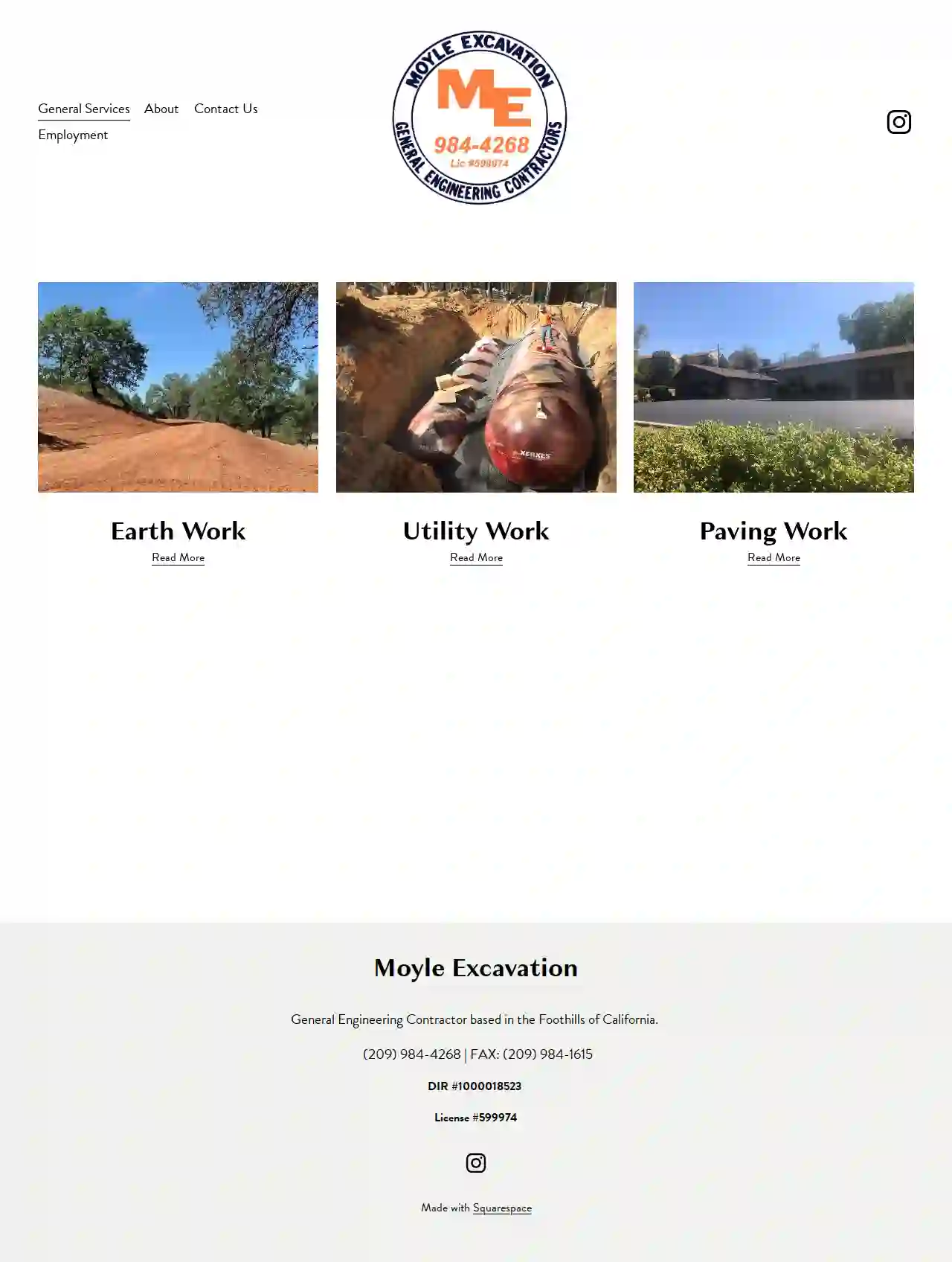
Moyle Excavation
51 reviewsP.O. Box 498, Jamestown, 95327, USAbout Moyle Excavation Moyle Excavation is a general engineering contractor serving Tuolumne County and neighboring areas for over 30 years, providing a wide range of services including excavation & grading, underground utilities, paving, and trucking. We handle projects of all sizes, from small residential sites to large-scale public projects. We take pride in building strong customer relationships and have a loyal base of repeat clients who appreciate our professionalism and commitment to delivering projects within budget and on schedule.
- Services
- Why Us?
- Our Team
- Gallery
Get Quote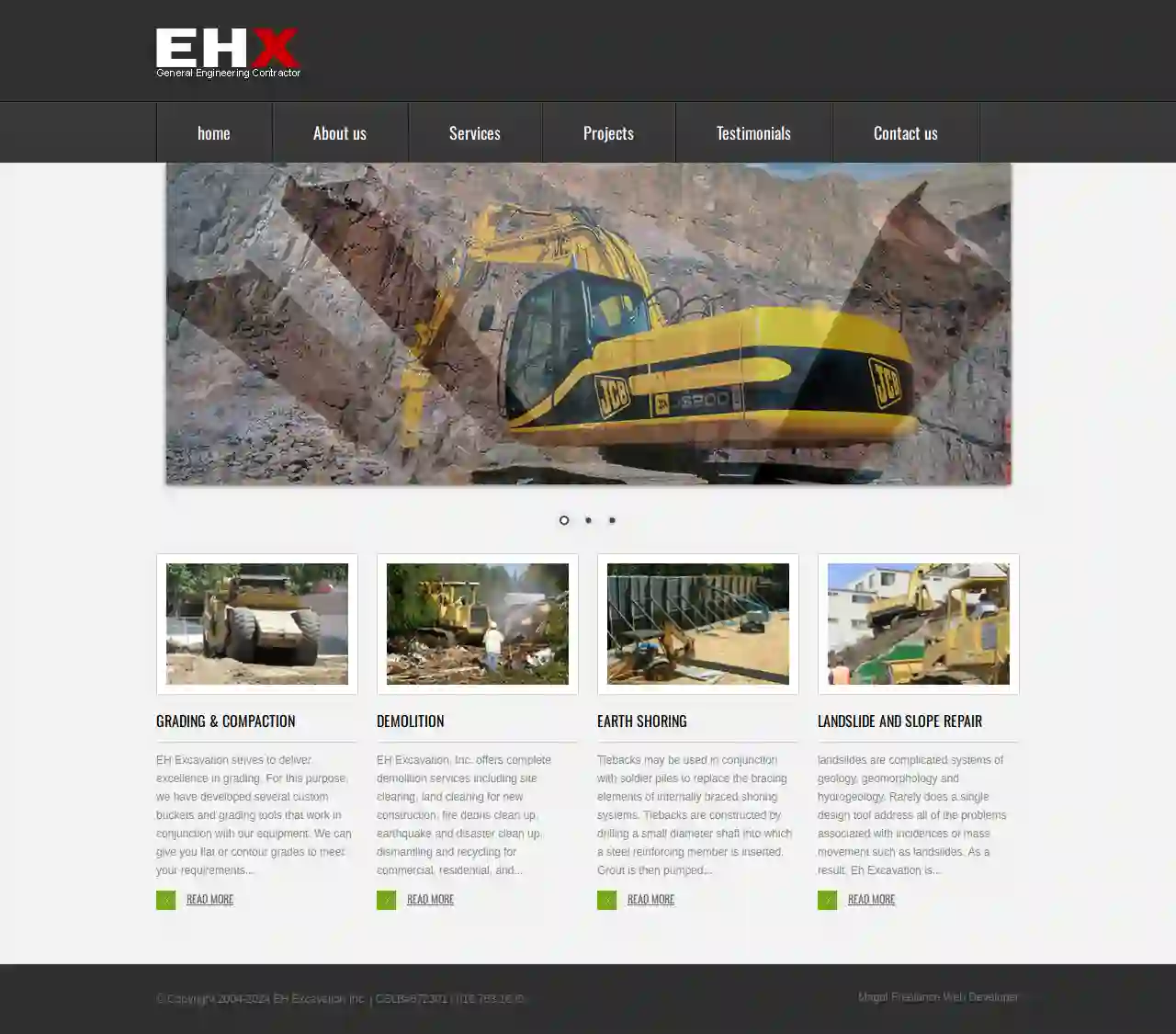
EH Excavation, Inc.
1Glendale, USEH Excavation: Your Trusted Partner for Grading, Demolition, and More EH Excavation is a leading provider of grading, demolition, and earth shoring services in Los Angeles. We are committed to delivering excellence in all our projects, utilizing our expertise and state-of-the-art equipment to meet your specific needs. Our team of experienced professionals is dedicated to providing high-quality services with a focus on safety, efficiency, and customer satisfaction. We understand that every project is unique, and we take a personalized approach to ensure that your goals are met. Whether you need a flat or contour grade, site clearing, or landslide repair, we have the skills and resources to handle it all. We are also committed to sustainable practices and strive to minimize our environmental impact. At EH Excavation, we believe in building strong relationships with our clients. We are dedicated to providing clear communication, transparent pricing, and exceptional customer service throughout the entire project lifecycle. Contact us today to discuss your project and learn how we can help you achieve your goals.
- Services
- Why Us?
- Gallery
Get Quote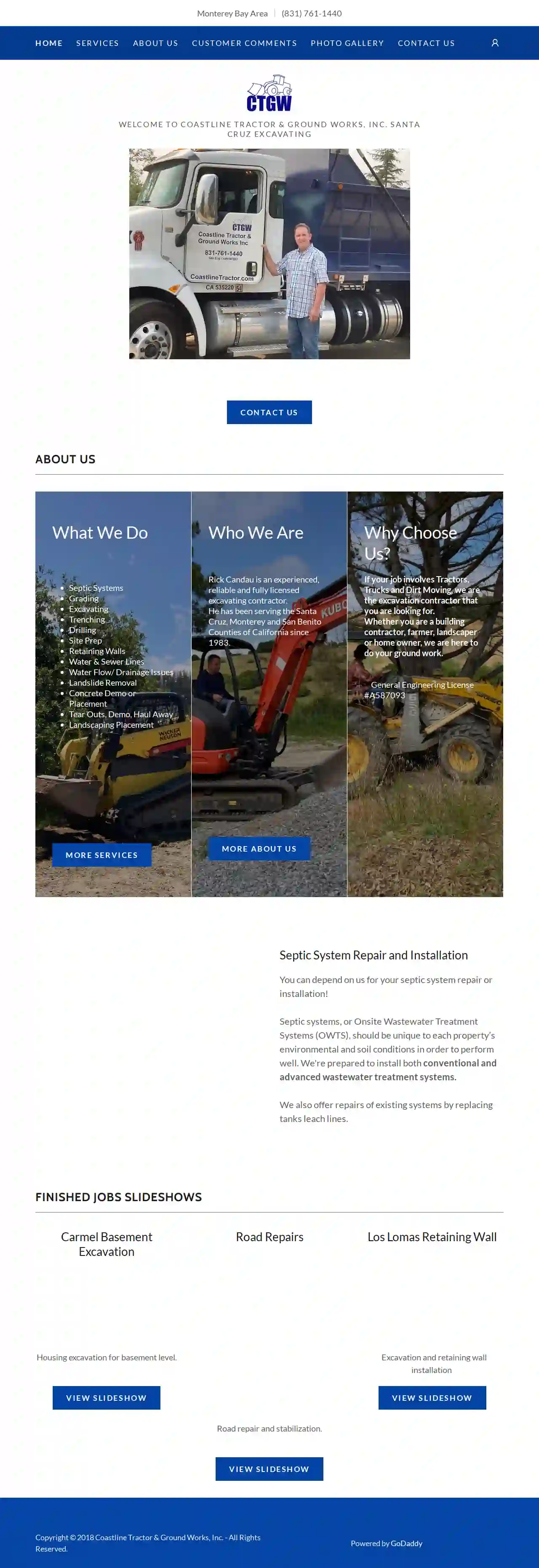
Coastline Tractor & Ground Works Inc.
52 reviewsEnterprise, US- Services
- Why Us?
Get Quote
Over 3,943+ Excavation Businesses on our directory
Our excavation pros operate in Mississippi & beyond!
ExcavationHQ has curated and vetted Top Excavation Businesses arround Mississippi. Find a top & reliable business today.
Frequently Asked Questions About Excavation Contractors
- Utility Locates: Contact your utility companies to mark the locations of underground lines before excavation begins. This is usually a free service.
- Hand Digging: Excavate carefully by hand near marked utility lines to avoid damage.
- Potholing: Digging small test holes to expose and verify utility depths and locations.
- Safe Distances: Maintaining a safe distance between excavation equipment and marked utility lines.
- Vacuum Excavation: Using vacuum excavation techniques to expose utilities without digging, reducing the risk of damage.
- Hauling to Designated Disposal Sites: Transporting excavated material to approved landfills or recycling centers.
- Recycling or Reuse: If suitable, some excavated soil might be recycled for other projects or reused on-site for landscaping or backfilling.
- Complying with Regulations: Adhering to local and environmental regulations for soil disposal to prevent contamination or illegal dumping.
- Project Size and Scope: The larger and more complex the excavation, the higher the cost.
- Soil Type: Different soil types require different equipment and techniques, impacting costs. Rocky or clay-rich soil can be more expensive to excavate than loose soil.
- Accessibility: Difficult-to-access sites might require specialized equipment or additional labor, increasing expenses.
- Disposal Costs: Hauling away excavated material (soil, rocks, etc.) to disposal sites incurs additional fees.
- Permits and Inspections: Depending on local regulations, permits and inspections might be required, adding to the overall cost.
How do you protect utilities during excavation?
How do you handle soil disposal after excavation?
How much does excavation cost?
What is the difference between excavation and grading?
Excavation: Primarily involves removing earth or other materials from a site. It's about digging down and creating space.
Grading: Focuses on shaping and leveling the ground to a specific slope or elevation. It's about adjusting the existing terrain.
For example, you might excavate a foundation and then grade the surrounding area to ensure proper drainage and a level surface for landscaping.
How do you protect utilities during excavation?
- Utility Locates: Contact your utility companies to mark the locations of underground lines before excavation begins. This is usually a free service.
- Hand Digging: Excavate carefully by hand near marked utility lines to avoid damage.
- Potholing: Digging small test holes to expose and verify utility depths and locations.
- Safe Distances: Maintaining a safe distance between excavation equipment and marked utility lines.
- Vacuum Excavation: Using vacuum excavation techniques to expose utilities without digging, reducing the risk of damage.
How do you handle soil disposal after excavation?
- Hauling to Designated Disposal Sites: Transporting excavated material to approved landfills or recycling centers.
- Recycling or Reuse: If suitable, some excavated soil might be recycled for other projects or reused on-site for landscaping or backfilling.
- Complying with Regulations: Adhering to local and environmental regulations for soil disposal to prevent contamination or illegal dumping.
How much does excavation cost?
- Project Size and Scope: The larger and more complex the excavation, the higher the cost.
- Soil Type: Different soil types require different equipment and techniques, impacting costs. Rocky or clay-rich soil can be more expensive to excavate than loose soil.
- Accessibility: Difficult-to-access sites might require specialized equipment or additional labor, increasing expenses.
- Disposal Costs: Hauling away excavated material (soil, rocks, etc.) to disposal sites incurs additional fees.
- Permits and Inspections: Depending on local regulations, permits and inspections might be required, adding to the overall cost.
What is the difference between excavation and grading?
Excavation: Primarily involves removing earth or other materials from a site. It's about digging down and creating space.
Grading: Focuses on shaping and leveling the ground to a specific slope or elevation. It's about adjusting the existing terrain.
For example, you might excavate a foundation and then grade the surrounding area to ensure proper drainage and a level surface for landscaping.